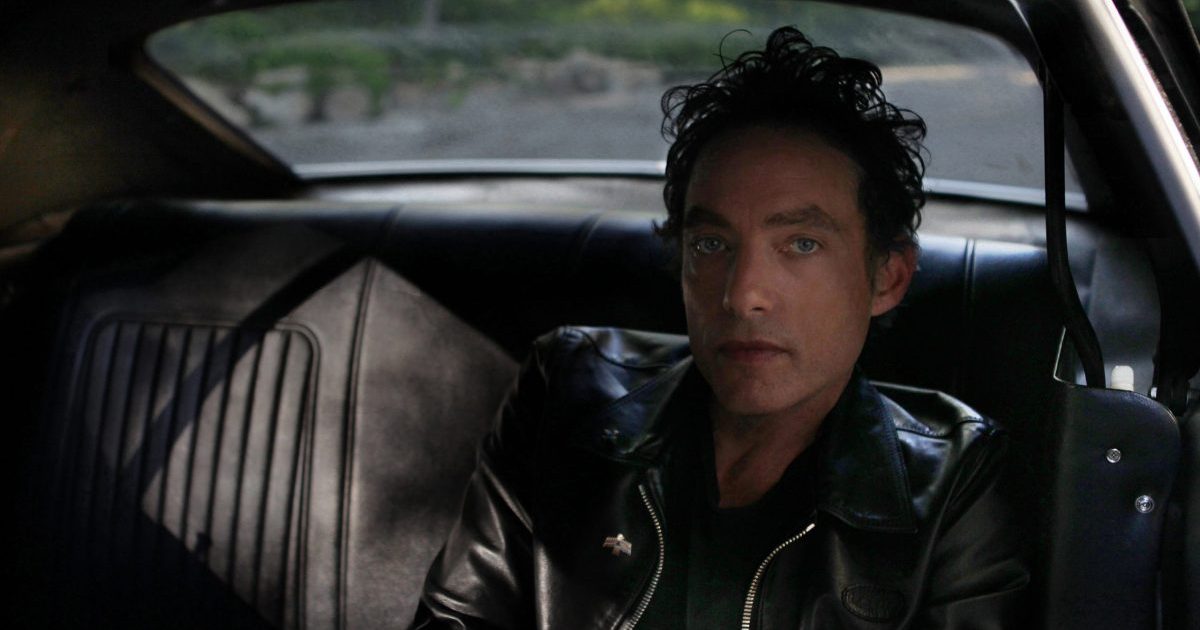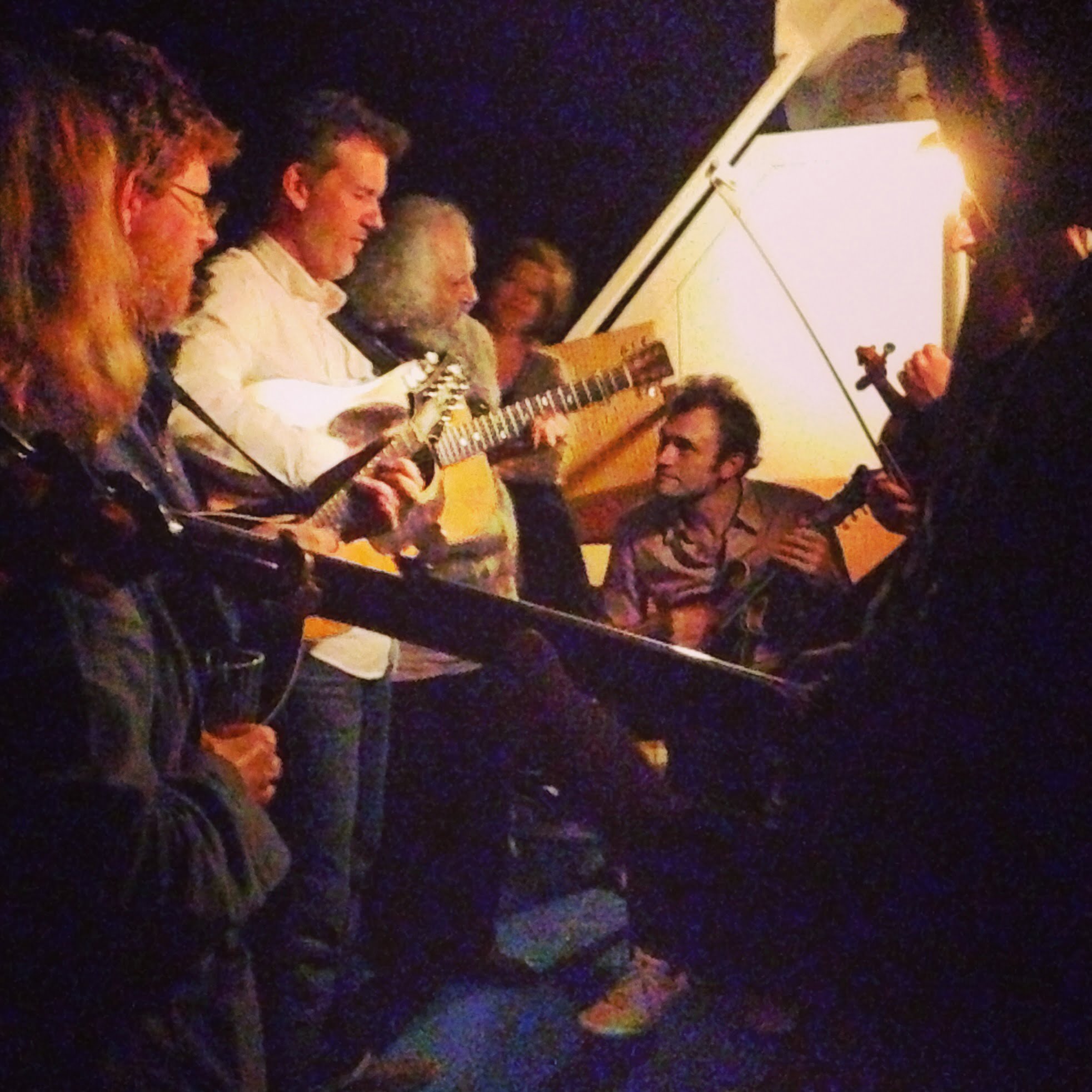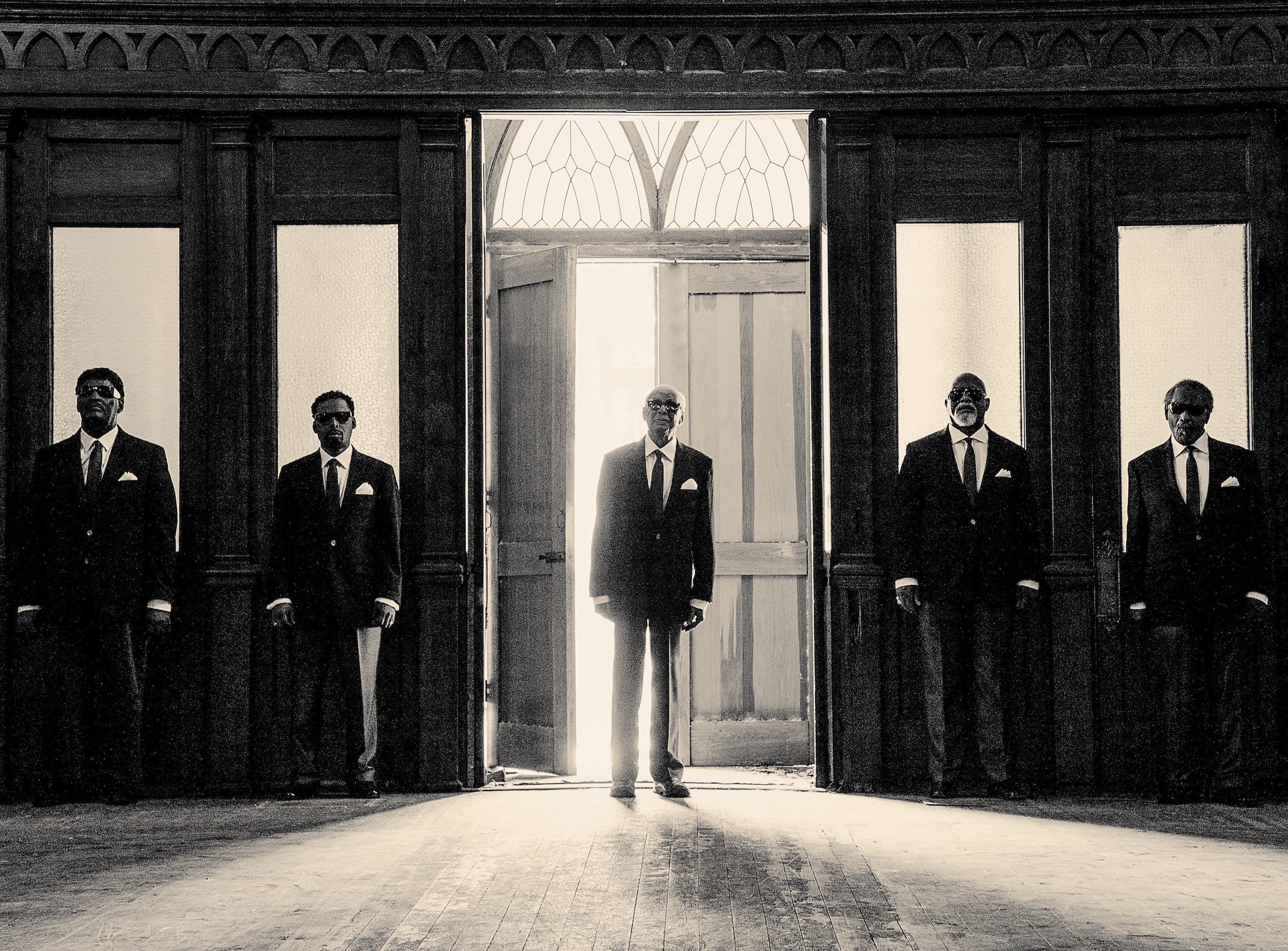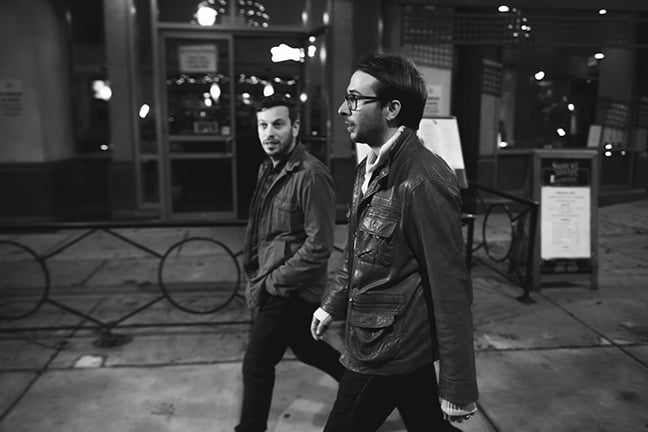Dedicated fans of the Wallflowers weren’t the only ones eager to hear new music from Jakob Dylan. Leading into the sessions for the new album, Exit Wounds, the band’s front man showed up with a batch of new material that even producer Butch Walker hadn’t heard yet.
“I don’t usually play my stuff before I get in the studio,” Dylan tells BGS. “If you have some rehearsals, yeah, you’ll work it up, but that’s one of the most exciting things for me. It’s like, I’ve got a secret here. I can’t wait to show up and show it to people I’m going to play with. I can’t wait to see the expressions on people’s faces — and I’m usually right. When something lights me up, it usually lights up other people.”
So far, the music from Exit Wounds has already been lighting up the late-night circuit. Next up is a national tour that begins in August. A few days before the album release, Dylan called in to BGS to talk about singing with Shelby Lynne, the music documentary Echo in the Canyon (for which he served as executive producer), and why he’s a better singer now, 25 years after “One Headlight” was the band’s inescapable radio smash.
BGS: What do you remember about the vibe in the studio as this record was coming together?
Dylan: There are all kinds of different situations that can birth a good record. I think starting out, you believe that things are supposed to be difficult and maybe even combative in the studio to get good things out of everybody. But I can confirm that I don’t think that is true. I don’t know that I ever thought it was true. On this record, the energy and the vibe was good from Day One and it persisted throughout. It was one of those things of having simultaneously what I considered a joy-making record but feeling like we were stretching out and doing great things.
You have a refreshed lineup in the band, too. When you are auditioning for the band, what are you listening for?
Well, I’m not sure that it’s a new lineup. It never has been a lineup, to be honest. The band made its first record in 1992 and that disintegrated pretty quickly by the time we got to Bringing Down the Horse [their 1996 breakout album]. That was already a new group of people and it continued on that path ever since. It was always designed to be my group. I always knew that was going to be the case. It’s been an evolution since then. There hasn’t been one lineup of this group that’s made two records, so it just continues on in that fashion.
But what am I looking for in players? Well, it’s not technique. It’s not technical abilities. I mean, I play rock ‘n’ roll music, [Laughs] so there’s just a little bit of room for that. But you’re just looking for the spirit in people, you know? A lot of people play great. There’s loads and loads of good musicians out there. I’ve worked with lots of them and we don’t have chemistry together sometimes. That’s disappointing, but first and foremost you look for people who listen to the same kind of music as you do, who have the same kind of shorthand in conversation. Then it’s really not that complicated afterwards, once you get that together.
It surprised me hearing Shelby Lynne come in on that first track, “Maybe Your Heart’s Not in It No More.” And she makes a few more appearances on the album, too. What does her voice bring out in this record?
I’m really grateful that she almost became a member of the group on the record. Butch Walker and I thought of her singing on the song, “Darlin’ Hold On.” But everything felt so good when she got there, and honestly, she finished that song in about 15 minutes. We said, “Well, you’re here. We’re just going to keep throwing songs at you if you’re OK with that.” And it just turned into, like, wow, she kind of became a member of the group, which I’m really glad about. I’m not the biggest fan on guest vocalists, necessarily. I mean, it is good at times but if you can get that person to be singing throughout, they’re part of the sound and the blend. I’m glad we were able to work that out with Shelby.
Let’s talk about songwriting a little bit. When you go to write these songs, is it just an acoustic guitar and a notebook? What does that look like as you’re writing?
Yeah, just like you said. The beginnings of it come from anywhere but the good ones come when you least expect it. When you actually make the effort to sit down write a song, that can be very frustrating and disappointing. But the good ones, you could be in your car or walking your dog. You don’t know. It comes from a conversation you heard and you can tell that is the germ of a song and it will nag at you until you can figure it out. And usually the best ones do come at once. I’ve had plenty of pages without lyrics without melody and it’s very hard to find places for those. Words themselves have melody in them — they have inherent melody. That’s why it’s best when they follow a simple chord pattern. When you’re younger, you’re hung up on trying to find interesting chord structures and patterns, “let’s put a minor here….” At the end of the day, there’s some use for a lot of that but keeping it simple and shooting straight is usually your best option.
Would you consider yourself to be influenced by country music?
For sure. I think we’re all a little confused about what country music is right now — and for a while now. When you say country music now, we all think of different things. George Jones for sure. … Not unlike Shelby, that voice is just special. They gave him all the awards for being the singer that he was, and the records were great, but I have to say I got to see him play one time, out here in L.A., and I was knocked off my feet. A lot of people modulate on that last verse, but I watched him take a breath and move it up a whole step in the middle of the song, which I was unfamiliar with. I thought it was pretty cool. You know, I can’t define to you what country music is. Is it hillbilly music? Is it the Louvin Brothers? I don’t really know what that term means so much anymore. I don’t know that it’s what we see on TV so much. But I tip my hat to everybody who’s doing it, either way.
When the Wallflowers were right out of the gate, vinyl wasn’t really around anymore, but this new record is coming out on vinyl. Are you a vinyl collector?
Yeah, I am. I’ve got a good turntable and I’ve got a tube amp, and always have. You’re right, though. That’s a complicated market. What gram of vinyl — there’s a lot of marketing going on. But I do like the act of doing it, as we all say. There’s a different mindset when you choose that record and put it on. But at the end of the day, as far as the quality of music, I just want to hear the music. Yeah, vinyl does sound the best, but I’ll listen to MP3s and I’ll listen to YouTube.
But there is something special about vinyl. When we started out, they weren’t making vinyl. They were making CDs with that big cardboard piece. Remember that? I think a couple of our records were on cassettes and that’s a long time ago. I just want to hear the song at the end of the day and I’m highly suspicious of the ways they keep making us buy the same music we have over and over again. [Laughs]
It’s clear you have a reverence for music from that vinyl era when you watch Echo in the Canyon. Looking back, what surprised you the most about putting that movie together?
I didn’t know documentaries took so long, I’ll tell you that. They’re a lot of work! But it’s interesting because you don’t have a script, you just have an idea. As you’re interviewing people, they say something interesting and you find yourself going down another path. It unfolds as you go. That’s exciting and frustrating at the same time. Some things don’t make the cut because they don’t fit the story that you were developing. Not that I didn’t have a fond appreciation for people putting films together, but it was good to see how that works and how it functions.
It was a good experience and obviously I got to talk to a lot of people. Some I knew a bit, some I knew a lot, and some I didn’t know at all. But it was a good opportunity to step out my own shoes and sit on the other side of the glass like you guys do. Sometimes it was a little daunting. I didn’t want anybody to be uncomfortable and regret showing up. That was the main mission, to be honest, but there wasn’t anybody that we tried to get involved that wasn’t interested. At the time, you’re just piecing it together and you’re appreciative that it’s going well. But I look at it now and I think it was pretty remarkable that we were able to get all those people together.
I think the melodies are a big reason those songs will live on. After spending so much time with the music of that era, did that influence the way you wrote for this record?
It just reconfirmed what I already knew: Don’t go to the studio if you don’t have good songs. It’s simple. That is why those records and those songs are so everlasting. They’ve got good bones and everything’s together. … They’re just great songs. They’re very pliable. I got to explore being a singer [in the film], which I hadn’t really done before. I sing my songs great because I wrote ‘em. I don’t consider my voice an instrument but I had to learn to do that with this big chunk of songs that were mostly done by really great singers. I discovered that I could do more with my voice than I imagined.
Your voice still sounds great, though. Twenty-five years or more into this, you still sound like you.
I appreciate that. I think I sound like myself, but I think I’m a better singer than I was because of Echo. I hear some of my earlier stuff and I can tell how limited I must have been. I can hear myself avoiding notes that I probably couldn’t get to, and it’s interesting to hear that. I can do more things now. But I am aware that people, after doing it quite a while, do start sounding quite different, whether it’s stylistic choices or just age. Sometimes for the better and often for the worse. But I don’t think I’m far enough along yet where you can say, “He doesn’t sound like he used to.” Maybe eventually. [Laughs] I try to treat my voice well and it’s mostly always been there for me. I’ve been very fortunate. I can’t say I treat it as well as I could but it hasn’t failed me yet.
Photo credit: Andrew Slater






